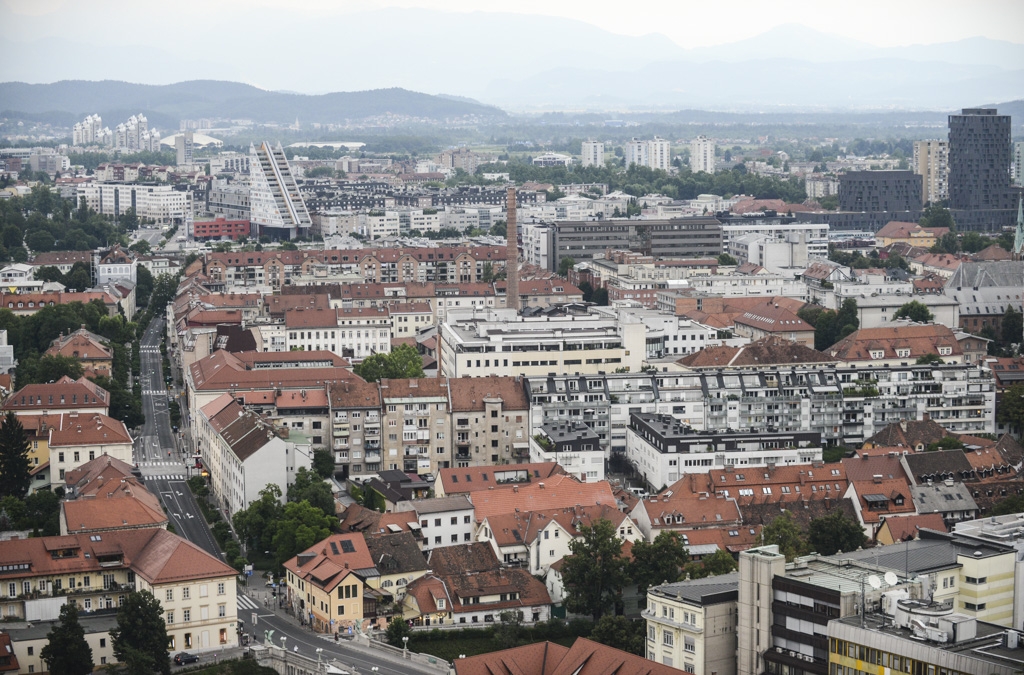Nearly a fifth of confirmed Covid-19 cases in Slovenia have been in nursing homes, which have been described by a health official as a “battlefield” that would determine the future course of the epidemic. Authorities are looking for solutions and have also urged families of nursing home residents to secure domestic care if possible.
The latest data put the total number of confirmed Covid-19 cases at 841, 137 of which are or were residents of what are around 115 nursing homes in Slovenia. Staff working in nursing comes accounts for another 30 cases.
The nursing homes in Metlika and Šmarje pri Jelšah as the first hotspots have been joined in recent days by the Ljutomer home, where the latest figure of confirmed cases is 22, 20 of which are residents. Confirmed cases have been reported in at least eight of Slovenia’s 100-plus nursing homes.
While the confirmed death toll for Šmarje pri Jelšah stands at six and in Metlika at least four have died, new data on lethal cases among nursing home residents is not available as the authorities no longer disclose the age or location details of each death case.
Facing a situation where nursing homes are completely full, meaning it is hard to organise isolation measures, and warnings about insufficient staff and protective equipment at nursing homes, authorities initially responded with an reallocation of healthcare staff.
The government’s coronaviurs crisis spokesperson Jelko Kacin spoke on Tuesday of the effectiveness of what had been a timely relocation in Metlika. He said talks were under way on relocation possibilities and that specific solutions would be drawn up for each nursing home.
The director of the Golnik clinic for pulmonary diseases Aleš Rozman spoke at length about the situation as Tuesday’s press conference and also called on families of nursing home residents who are able to do that to take them home so as to facilitate relocation.
The call was echoed today by Labour Ministry State Secretary Mateja Ribič: “We call on the families to take this on with all seriousness and with the awareness that it will not be possible to readmit their loved one to he home during the epidemic.”
Ribič highlighted a number of protective measures put in place at nursing home, while she also said she could guarantee that all nursing homes that urgently need protective equipment will receive it.
Meanwhile, Rozman described on Tuesday nursing homes as a “battlefield” that would determine the future trajectory of the epidemic.
“We are afraid of small epidemics in nursing homes completely saturating our healthcare system and leave us facing unnecessary casualties,” he added.
Task forces have been established, comprising experts from hospitals and primary care, with the priority task of preventing the spreading of the virus in nursing homes with confirmed Covid-19 cases.
They will also examine the transfer routes and try to prevent infections in nursing homes where there are no confirmed cases yet, Rozman added.
Four more crossings on Slovenia-Austria border to close
Only nine points on the Slovenian-Austrian border will be open as of 2 April after the Austrian government has put in place additional restrictions to contain the spread of coronavirus.
The border points at Karavanke, Šentilj (the motorway and rail crossing), Gornja Radgona and Kuzma will operate around the clock. Trate, Radlje and Ljubelj will be open from 5am to 9pm, while Vič will be open between 5am and 11pm.
Holmec, Jurij, Korensko Sedlo and the crossing in Šentilj that is on the main road will be closed, the Slovenian Foreign Ministry announced on Twitter on Wednesday.
Austria had initially closed dozens on crossing points as of 18 March. On 27 March Slovenia reintroduced police checks on what is the EU’s internal border and introduced 13 points of crossing.
There are now restrictions in place on all of Slovenia’s borders, either introduced by Slovenia or by the neighbouring countries.

